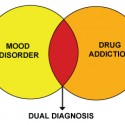Teen drinking not going away
Four ordinary kids sat around a table at a local youth center after being posed one simple question. It was the question asked of many in the under-21 crowd, and they gave the same answer given by a majority of their peers.
“I drink. I’m not going to lie,” said a 16-year-old.
It’s the same line nearly 75 percent of all students have given at some point or another, according to national SADD (Students Against Destructive Decisions) statistics, and it’s also what’s made alcohol the No. 1 substance-abuse problem in Indiana.
But kids don’t drink to feed an addiction or a craving as some adults do. It’s more the need the feel cool and accepted. For this reason, it has left the community, especially schools, with what could be an insurmountable task.
“The stakes are even higher now. … Kids tell us they’re not drinking to experience it. They’re drinking to get wasted,” said Lisa Hutcheson, director of the Indiana Coalition to Reduce Underage Drinking. “It starts early. You really can’t wait until middle school or high school to educate, or you’ll lose kids.”
As these four teens explained, by the time they were 12, they knew how to get alcohol.
“You’re at a party … and you say, ‘Hey, who’s 21?’” said one of the four, a 16-year-old.
But that’s just one of many ways. For some, it’s provided by older friends at parties or by their parents or other family members in their homes. Some obtain fake IDs and buy it themselves. As the four described what they had done or observed from friends, not one had a hint of remorse in his or her voice.
“It’s all right as long as they don’t act stupid,” the 16-year-old said about his friends who drink. But is it?
Earlier in the school year, members of the South Side High School cheerleading squad discovered there were consequences when four were suspended for consuming alcohol at a football game and another was expelled for supplying the drinks, according to e-mails sent between district administrators.
“Their brains aren’t developed enough to see the consequences of their actions,” said Shiloh Arp, Northrop High School SADD adviser.
Schools aren’t sitting by idly, though, waiting for the problem to worsen. In fact, as the problem has increased in the state over the last 10 to 15 years, according to Hutcheson, schools have gotten smarter about how best to attack the issue.
At Northrop, SADD has taken an “in-your-face” approach to alcohol awareness. Last year, it was a mock crash with graphic images of dying students. This year it’s going to be a mock trial, where a student faces charges of drunken driving.
“We’re just trying to get kids aware. We try to use shock therapy,” Arp said, adding she is now getting parents to sign a pledge to host alcohol- and drug-free parties in their homes. “The more that we talk to them about the effects, then they’ll be less likely to go out and drive drunk.”
At Carroll High School, Sam DiPrimio, assistant principal and head of discipline, said he relies on students to find the offenders.
“We have a lot of people who are about doing the right thing,” he said.
Ultimately, no one had a fix for this growing problem and neither the rules nor the consequences were enough to deter kids. As Hutcheson explained, “there’s no overall cure.” Small-scale interventions will work maybe for one or two kids, but the larger issue has to be attacked head-on before change can be achieved, she explained.
“I think underage drinking is a community problem,” Hutcheson said. “It’s always going to be here … (but) everyone needs to be involved in the solution or we won’t make progress.”
source: News-Sentinel
